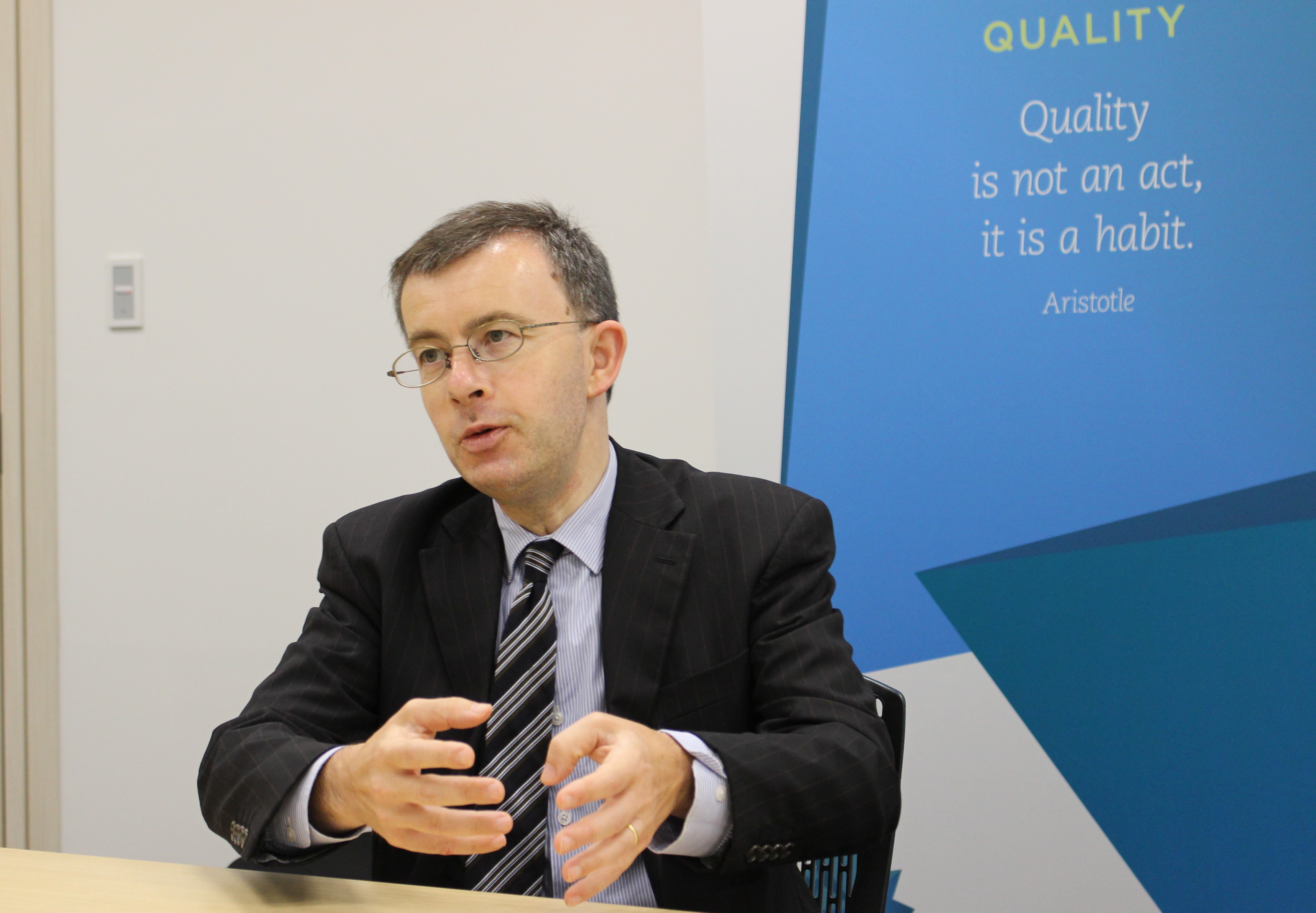Richard Kaye

- Classification
- Equity
- Company
- Comgest Asset Management Japan Ltd.
Richard Kaye joined Comgest in 2009 as an Analyst and Portfolio Manager, bringing with him a wealth of experience in Japanese equities. Upon joining Comgest, he became co-lead of Comgest's Japan equity strategy.
Starting his career in 1994 as an Analyst with the Industrial Bank of Japan, Richard joined Merrill Lynch in the same role in1996. In 2005 he moved to the Wellington Management Company in Boston as a Portfolio Manager of Japanese TMT stocks. Richard graduated from Oxford University where he majored in Oriental Studies.

We believe that share prices correlate to profit growth over long term, so Comgest looks for sustainable profit growth from companies with inimitable business models and structural change in their addressed industries.
Comgest is a roughly thirty years old firm which pioneered the independent investment management business in France, and has consistently hallmarked its investment style as Quality Growth. It does nothing else.
Our founder Jean Francois Canton has been watching Japanese equities for many decades and considered Japan an excellent market to invest with this style, simply because so few other people were doing that.
I find the clarity and consistency of this Comgest approach very easy to work with, as we look for those special business models and structural change.
We have had Tokyo presence for over ten years and emphasize heavily research visits in our idea generation and thesis checking, and maintain an investible universe of eighty or so stocks for which we work out a Dividend Discount Model driven especially by five year earnings forecasts.
Japan has beneficiaries of domestic change like Nihon M&A Center which provides solution to small and medium sized enterprises’ succession issues, or Obic which provides software which enhances the efficiency of small companies.
Japan also has products which are popular with the emerging Asian consumer, like the cosmetics of Pola Orbis or the baby bottles of Pigeon.
Both these themes are not so well understood, but represent sustainable quality growth investment opportunities.
Because we have clear investment parameters for sustainable structural growth with hard-to-imitate business models, we are able to take a considerable portfolio weight in these areas like ‘domestic change’ or ‘emerging Asian consumer beneficiaries’.

I am interested in the human dimensions which make companies work, and how certain combinations of people can create consistently good companies, and I would like to be a partner with such companies.
Japan remains a misunderstood market so the opportunity to discover great companies before they are widely known is quite large, which is why I am happy to work with Japanese equities.
I try to invest in quality companies with appropriate capital allocation who at least can conserve the capital of their shareholders, and who can grow thanks to a structural change in the market which they address.
Our ideal holding period would be ‘forever’, as stable earnings growth supports a steady appreciation of the share price.
As for what we would never do, banks or commodities investing would be hard for us because we would feel unable to predict the earnings since there are too many extraneous factors, from interest rates to commodity price markets.
By choosing the appropriate balance of risk, growth and valuation, and by investing in companies whose businesses we would like to own personally.
We compound this with a risk and ESG overlay on the portfolio and individual stocks.

Bill Priest ‘Winning at Active Management’ was a helpful insight on fund management company organization and the optimization of idea generation, from another slightly maverick individual who resembles our company’s founders.
Benjamin Graham ‘The Intelligent Investor’ was useful to me in understanding how Buffett identifies business models which are hard to imitate, a characteristic which we seek also in our definition of quality and capital allocation discipline.
Howard Chancellor’s ‘Capital Returns: Investing through the Capital Cycle’ explains signs of excessive investment in specific industries. It is rather theoretical but offers a useful framework.
Notes:
This article originally appeared on Jul 13 , 2018. Any views presented in this article are as of such date and are subject to change.
This article and the information provided therein are not a recommendation to purchase or sell any security, nor are they intended to constitute the marketing of, or a solicitation for investment in, any investment product.
Founded in 1985, Comgest is an independent, international asset management group with entities in Paris, Dublin, Hong Kong, Tokyo, Singapore, Düsseldorf, Amsterdam and Boston. Comgest is characterized by its unique approach of ‘quality growth in the long term’ through its unconstrained style across all equity portfolios. It serves a diverse client base of long-term oriented investors around the globe.
For over 30 years, we have been focused on one objective: quality growth over the long term, where conviction really matters. We strive to create value for our clients in a replicable way. To do this we look to invest in companies with durable competitive advantages that are able to compound shareholder value at rapid rates, for an extended period of time. We believe sustainable earnings per share growth (EPS) leads to above-average investment returns at below-average risk. We use a disciplined investment strategy to select quality companies that we believe will prosper.
Comgest launched its Japan equity strategy in 1994. This all-cap, quality growth strategy leverages both the firm’s 20+ years of experience in Asia / emerging markets as well as its local research presence in Asia since 1993 and in Tokyo since 2007.
Our core beliefs are that:
— Over the long term, fundamentals prevail and share price growth converges towards EPS growth
— Markets generally fail to correctly value businesses with strong and sustainable competitive advantage and persistent above-average earnings growth
— Sustainable EPS growth with high ROIC leads to above-average investment returns at below-average risk
— Integration of ESG research enables a better assessment of quality
The investment team members are a team of sector generalists. As a benchmark-agnostic manager, we believe a team of generalists is important so that ideas can be compared and debated amongst all team members. All Portfolio Managers are also Analysts. The team conducts weekly research meetings during which ideas are discussed and challenged at length. In terms of decision-making responsibilities, unanimity is required in order for a stock to enter the Universe of approximately 80 securities. Portfolio construction is implemented by the lead Portfolio Managers based on team discussions.

July 13, 2018
by Investment in Japan

